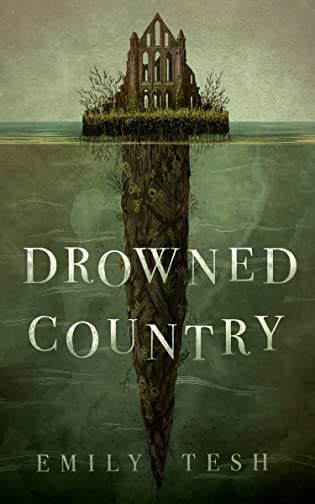 Drowned Country (The Greenhollow Duology, #2) by Emily Tesh
Drowned Country (The Greenhollow Duology, #2) by Emily Tesh Format: eARC
Source: supplied by publisher via NetGalley
Formats available: paperback, ebook, audiobook
Genres: fantasy, M/M romance, mythology
Series: Greenhollow Duology #2
Pages: 160
Published by Tordotcom on August 18, 2020
Purchasing Info: Author's Website, Publisher's Website, Amazon, Barnes & Noble, Kobo, Bookshop.org
Goodreads
Drowned Country is the the stunning sequel to Silver in the Wood, Emily Tesh's lush, folkloric debut. This second volume of the Greenhollow duology once again invites readers to lose themselves in the story of Henry and Tobias, and the magic of a myth they’ve always known.
Even the Wild Man of Greenhollow can’t ignore a summons from his mother, when that mother is the indomitable Adela Silver, practical folklorist. Henry Silver does not relish what he’ll find in the grimy seaside town of Rothport, where once the ancient wood extended before it was drowned beneath the sea―a missing girl, a monster on the loose, or, worst of all, Tobias Finch, who loves him.
My Review:
This is a story about the magic that lingers in the hidden corners, in the dark and secret places of this world. It’s also about the magic that lives in the deepest reaches of the heart – whether that heart is more-or-less human – or so very definitely not.
 When I finished Silver in the Wood last year, I thought that it was utterly lovely. Also that while it was complete in itself, I really wanted there to be just a bit more. Drowned Country is that bit more, and it is every bit as lovely as its predecessor.
When I finished Silver in the Wood last year, I thought that it was utterly lovely. Also that while it was complete in itself, I really wanted there to be just a bit more. Drowned Country is that bit more, and it is every bit as lovely as its predecessor.
But it is also a very different story. And probably doesn’t stand well on its own. Howsomever, even combined the Greenhollow Duology is short enough to be just an afternoon’s jaunt to a world that both is, and is not, our own. (The duology is even short enough that the listening time for the combined audiobook is just under 6 hours!)
When Silver in the Wood opened, Henry Silver was a young scholar, determined to find the truths behind the old myths and legends of not just the Greenhollow, but of all the legendary, magical and mythological creatures that still haunt the hidden places. He doesn’t want to believe that they are all merely the dangerous monsters that his mother has made a living out of hunting down and destroying.
When the Drowned Country opens, it opens in the aftermath of the events of Silver in the Wood. Two years after Henry traded places with Tobias Finch, the former “caretaker” of Greenhollow, Henry himself is now the Wild Man of the woods and Tobias is now Henry’s rather formidable mother’s assistant.
But Tobias had few difficulties with his centuries of solitude as the Green Man, while Henry is more than a bit lost in his new role. Or he just plain misses his friend and lover, Tobias Finch.
So when Henry’s mother arrives at what has increasingly become the ruin of his house, Henry is both appalled and energized. He may not want to deal with his mother, but he needs to put himself back out into the world – and he needs to beg forgiveness of the lover he lied to and lost.
Henry also hopes that his mother has finally recognized his skills and his value to her work. After all, he is both a published folklorist and a powerful nature avatar. But Adele Silver does not think that much of her son. She just wants to use him as bait for a vampire with a predilection towards handsome young men.
What Henry finds is a woman who might be the sister of his heart, if he can just manage to save her from the fairy who plans to install her as the queen of an ancient and dead realm. He can manage to save the girl, assist his mother, and gain his lover’s forgiveness. In order to do so he’ll have to fully embrace the role that he stumbled into with little thought for the future.
The magic he has at his fingertips might be just enough to save everyone else if he is willing to fully inhabit a role that fits him nearly as badly as the too-large coat that Tobias left behind.
But there is still magic in the world, and it might be just enough to save them all.
Escape Rating A: Silver in the Wood linked back to a lot of different stories, particularly those that revolve around nature spirits like the Green Man – meaning characters like Tom Bombadill and Tam Lin. It also nicely – or rather evilly – ropes in all those stories about evil spirits that never die without great sacrifice.
The story in Drowned Country feels more like it hearkens back to Rip Van Winkle and all of those stories about the magic of fairy rings, that they are gateways between our world and the land of the fae, and that those who wander between can disappear for centuries only to return after all their loved ones are long dead but believing that they’ve only been away a short time.
At the same time this story has a feeling of “the magic goes away” in that the Greenhollow is smaller than it once was, that its magic doesn’t stretch as far as it used to, and that the magic places in the worlds are dying.
Plus there’s that connection to the supernatural stories that became so popular in the late 19th century – the time period when this slightly alternate history feels like it belongs. The vampire that Adele Silver plans to lure out of his lair is quite real. Also quite dead and not merely undead.
And overtop of all of this is a combination of a quest and a romance. Henry isn’t sure whether he really plans to rescue the girl or he really hopes to follow her into Fairyland. She reminds him of himself, with that same sense of undying and something unthinking curiosity. But Henry also wants to win Tobias back for however long he can keep him. As an avatar of the wood, Henry will live for centuries, but Tobias is now mortal.
The only problem is that he has to first get Tobias to talk to him, and second to forgive him. Both are easier said than done, with all of the puns implied.
At the end, I was blown away. I expected the ending of Silver in the Wood, the whole story was leading straight towards it. I was NOT expecting the end of Drowned Country. It was beautiful, and breathtaking, and a complete surprise. It was also a perfect and fitting ending to the entire story..

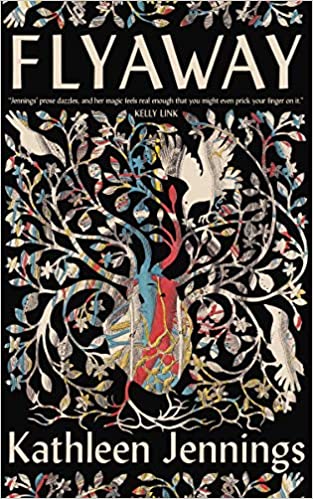 Flyaway by
Flyaway by 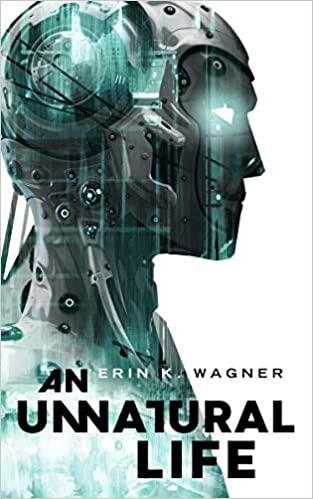 An Unnatural Life by
An Unnatural Life by 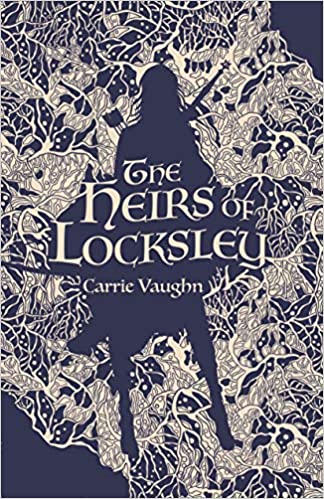 The Heirs of Locksley (The Robin Hood Stories, #2) by
The Heirs of Locksley (The Robin Hood Stories, #2) by  They also do a good job of giving bits of long-ago English history a face that makes them still feel relevant. The first book,
They also do a good job of giving bits of long-ago English history a face that makes them still feel relevant. The first book,  The Order of the Pure Moon Reflected in Water by
The Order of the Pure Moon Reflected in Water by 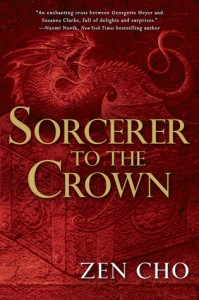 This was absolutely none of the things I was expecting when I picked it up – and that’s mostly a good thing. Although, at least so far, this author’s works have not quite, at least for this reader, lived up to her incredible debut,
This was absolutely none of the things I was expecting when I picked it up – and that’s mostly a good thing. Although, at least so far, this author’s works have not quite, at least for this reader, lived up to her incredible debut, 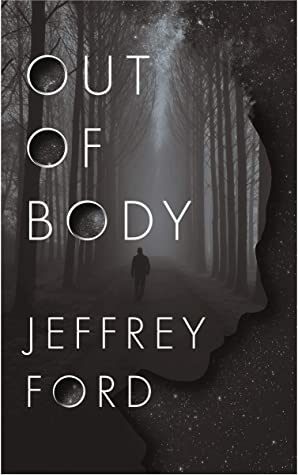 Out of Body by
Out of Body by  The Ghosts of Sherwood (The Robin Hood Stories, #1) by
The Ghosts of Sherwood (The Robin Hood Stories, #1) by 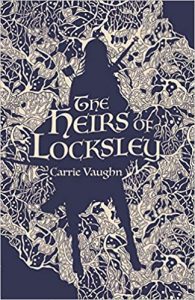 But the story also deals with the politics of the country as one king’s reign is about to end and his heir is a child of nine. That forces are jockeying for power, and that Robin will have influence and could possibly be influenced is a part of his times.
But the story also deals with the politics of the country as one king’s reign is about to end and his heir is a child of nine. That forces are jockeying for power, and that Robin will have influence and could possibly be influenced is a part of his times.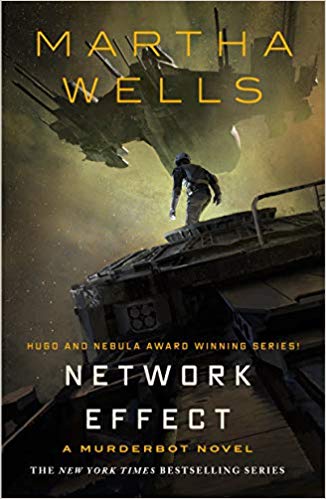 Network Effect (The Murderbot Diaries, #5) by
Network Effect (The Murderbot Diaries, #5) by 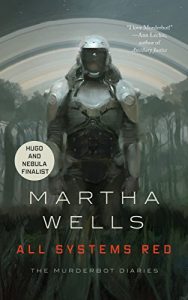 If you are already well acquainted with Murderbot, Network Effect is a fantastic way to get to know it and its world a whole lot better. But if you do not already know Murderbot, this is not the place to get to know Murderbot. That would be
If you are already well acquainted with Murderbot, Network Effect is a fantastic way to get to know it and its world a whole lot better. But if you do not already know Murderbot, this is not the place to get to know Murderbot. That would be 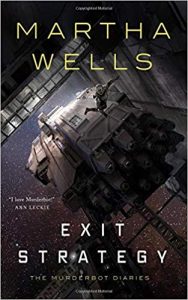 Escape Rating A+: I’ve been waiting for Network Effect for almost two years, and it was well worth the wait. This is one of those reviews where I just want to squee all over the page. This was definitely a one-day read for me. I absolutely could not put it down. At all. Not that I tried very hard.
Escape Rating A+: I’ve been waiting for Network Effect for almost two years, and it was well worth the wait. This is one of those reviews where I just want to squee all over the page. This was definitely a one-day read for me. I absolutely could not put it down. At all. Not that I tried very hard.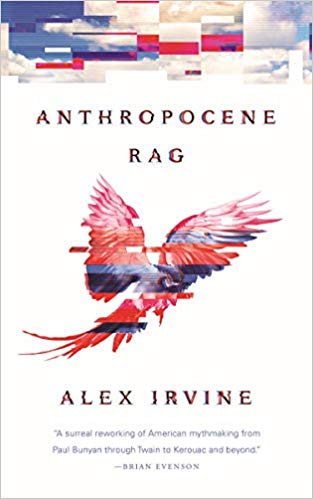 Anthropocene Rag by
Anthropocene Rag by 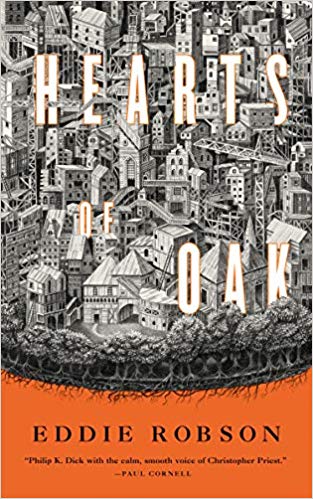 Hearts of Oak by
Hearts of Oak by